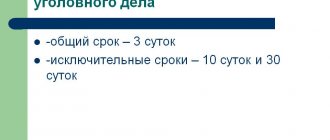Concept
Failure to fulfill duties is incomplete participation in the upbringing of a person who has not reached the age of majority, or complete removal from him.
Partial fulfillment of obligations by those who must raise the child (in particular, parents or teachers) is also considered non-fulfillment.
Failure to fulfill duties entails liability under Article 156 of the Criminal Code of the Russian Federation . It occurs only in cases of cruelty to minors and the use of physical force.
Child abuse
This may include beatings, tying, special harm to health, threats, sexual harassment, deprivation of home, food or water, as well as methods of education that are unacceptable for a normal and healthy life.
If a person has already been deprived of parental rights, then he cannot be convicted under this article of the Criminal Code, since he is exempt from raising a child.
Corpus delicti
The elements that constitute the crime are:
- an object;
- objective side;
- subject;
- subjective side.
The object of this crime is the child himself, who has not reached the age of majority, as well as his moral, psychological, physical development and health.
The objective side is the failure to fulfill obligations to support and raise a child by parents, cruel treatment of a minor, or incomplete fulfillment of duties in an unacceptable form.
Failure to comply is considered the complete absence of parents in the child’s life, attention to the development, education and health of the baby. In such a case, liability may arise if the parent should have fulfilled the obligations and could have done so. Poor and substandard fulfillment of assigned obligations is considered improper.
For unconditional criminal liability to arise, it is necessary that non-fulfillment or improper fulfillment be accompanied by cruel treatment on the part of guardians and parents. In this case, no consequences are required to finally formulate the crime.
The subject of a crime is any adequate person who has reached the age of 16 .
Specifically, the subjects of the crime of violating the education of a minor are:
- the child's parents;
- guardian (if there are no parents and he has an obligation to care for the child);
- a teacher or educator in a special institution that is obliged to ensure the rights of minors.
The subjective side is the guilt of the subject for intentionally causing harm.
Qualifying features
Article 156 of the Criminal Code of the Russian Federation has its own qualifying criteria, according to which the court pronounces a sentence on the convicted person. This article is based on cruel treatment of minors , causing them physical, mental or moral harm, and failure of parents to fulfill their direct responsibilities in raising a child. Participation in its development, education, health promotion.
If the incident is a separate article, then the punishment is most often not provided in aggregate. For example, charges of causing harm to the health of a child (Article 111, 112) , torture (Article 117) , sexual harassment (Articles 131, 132, 133, 134, 135) and others.
Failure to connect charges for such crimes with Art. 156 of the Criminal Code of the Russian Federation makes the fate of the convicted person easier and brings him closer to avoiding criminal liability. This is considered an error in qualifying criteria.
Punishment according to Article 156 of the Criminal Code of the Russian Federation
Improper fulfillment of obligations is punishable by:
- fined up to 40 thousand rubles;
- deprivation of wages;
- a person does not have the right to hold any position for a certain period of time;
- does not have the right to engage in entrepreneurial activity for 3 years;
- correctional labor (1 year);
- compulsory work (180 hours);
- imprisonment (maximum three years).
Failure to fulfill the obligation to raise a minor (Article 156 of the Criminal Code of the Russian Federation)
- home
- Local authority
- Local administration
The physical, mental, spiritual, moral and social development of a minor, as well as his health, have always been under special protection of the state.
Thus, criminal liability for failure to fulfill the obligation to raise a minor is enshrined in Article 156 of the Criminal Code of the Russian Federation (hereinafter referred to as the Criminal Code of the Russian Federation).
Under this article, both parents, adoptive parents, foster parents, guardians and trustees, as well as persons obliged to raise a minor in the process of supervising the latter due to professional (official) duties, may be held criminally liable.
The crime enshrined in Article 156 of the Criminal Code of the Russian Federation is expressed in the improper performance or failure to fulfill the duties of raising a minor assigned to a person by law, by-laws, combined with cruel treatment of a minor by persons specified in the disposition of this article (a parent or other person, who is entrusted with these duties, as well as a teacher or other employee of an educational, training, medical or other institution obliged to supervise a minor).
Failure to fulfill or improper fulfillment of upbringing responsibilities must be coupled with cruel treatment of a minor, which can be expressed both in physical and mental violence, and in the use of other unacceptable methods of education that do not involve violence.
Physical violence consists of beatings, restriction of freedom, torture, and causing any degree of harm to the health of a minor. The commission of any violent crime is more serious than that provided for in Art. 156 of the Criminal Code, and always requires qualification based on the totality of crimes. Mental violence can be expressed in humiliation, insult, ridicule, uttering threats, intimidation, bullying, etc. The use of other unacceptable methods of education can manifest itself in deprivation of food, clothing, sleep and rest, failure to provide medical and other assistance, etc.
This crime is considered completed from the moment of non-fulfillment or improper fulfillment of duties to raise a minor, coupled with cruel treatment of him.
For committing a criminal act provided for in Article 156 of the Criminal Code of the Russian Federation, punishment is established up to imprisonment for a term of up to three years.
Statistics data in the Russian Federation
Statistics in Russia of bringing persons to justice under Article 156 :
- 4% - imprisonment;
- 69% - suspended sentence;
- 4% - fine;
- 23% - amnesty.
According to statistics, the number of people convicted under Article 156 is growing every year. If in 1997 , taking into account the totality of crimes, there were 269 people , then in 2003 the figure had already increased almost 8 times and amounted to 1,560 people .
The effect of Article 156 is applied in only 20% of cases . Basically, the court carefully reviews the situations and gives its interpretation. For example, it is impossible to recognize a failure to fulfill duties if a child lacks clothing or food due to the fact that the spouses do not have a job.
Termination of a criminal case under Art. 156 of the Criminal Code of the Russian Federation for reconciliation of the parties
According to established judicial practice in cases of crimes under Art. 156 of the Criminal Code of the Russian Federation, termination in connection with the reconciliation of the parties must be carried out with the consent of the state prosecutor. It is believed that the prosecutor acts on behalf of the state as a guarantor of the protection of minors. In my case, in a case terminated on the basis of Art. 76 of the Criminal Code of the Russian Federation and Art. 25 of the Code of Criminal Procedure of the Russian Federation, the state prosecutor objected to such termination. However, the court made a correct and fair decision.
I’ll tell you honestly, I don’t like such things... I myself am the father of three children, and everything related to committing crimes against minors causes me internal rejection, probably like most people.
But it’s always nice to see when a person has a chance to start life “from scratch,” and that you helped create this chance.
My client B. is the mother of three young children, but she began to abuse alcohol, stopped working, and therefore did not provide financially for the children. Against the backdrop of “fun” pastime with local outcasts who often visited her for “vacation”, B. developed indifference to children , who were actually left to their own devices, were often malnourished, and did not attend educational institutions. And the children slept in the closet so as not to interfere with the “rest” of numerous and frequent guests. All children suffered from head lice.
The inquiry passed somehow unnoticed, casually, against the backdrop of B.’s complete indifference to both her fate and the fate of her children, she formally admitted guilt, after familiarizing herself with the case, we announced a special procedure for the trial.
In general, an ordinary “appointment” case under Art. 156 of the Criminal Code of the Russian Federation.
Everything changed after the first court hearing, when the state prosecutor refused to support the request for a special trial procedure, and the magistrate switched to a general procedure. And then something apparently clicked inside my client, which rebooted her maternal instinct. After the first meeting there were tears and questions: “what should I do now, because they will be taken away from me.”
And when I saw that the person was finally concerned about his fate, and the fate of his children, that there was someone to help, I happily joined in. The proposal to the social security representative to think about the possibility of terminating the case through reconciliation with the victims did not initially arouse much enthusiasm in the latter; it all boiled down to the fact that “let the children forgive.”
The first thing we needed was time, which, as we know, heals. They delayed as much as they could, objecting to the reading of the testimony of the district police officers, and the investigators were called in for questioning. The defendant began to visit her children almost every day in the social rehabilitation center, where they were placed by the social security agency, and of course the children forgave their mother. B. brought her apartment into acceptable condition, hung new and clean wallpaper, albeit cheap, and arranged a place for the children to study (someone donated an old desk). In general, we convinced the representative of social protection, who was informed that children from the social rehabilitation center were asking to see their mother, and only talked about their mother.
And then the luck factor worked, our justice of the peace went on maternity leave, and we began to consider the criminal case anew, and this time the state prosecutor, tired of us, did not object to considering the criminal case in a special manner.
At the second “first” meeting, the representative of the victims filed a motion to terminate the criminal case against B., since she had reconciled with the victims, the harm caused to them had been made up for, and they had no complaints.
Unfortunately, the assistant prosecutor included a “guarantor of the protection of minors” and objected to the termination of the criminal case for reconciliation of the parties.
But the court came to the correct conclusion that the petition was justified and granted it, dismissing it on the basis of Art. 76 of the Criminal Code of the Russian Federation, Art. 25 of the Code of Criminal Procedure of the Russian Federation, a criminal case against B.
The judge's decision was not protested by the state prosecutor and entered into legal force.
Whether B. will take the chance to start everything from scratch, I don’t know, I want to believe in it...







